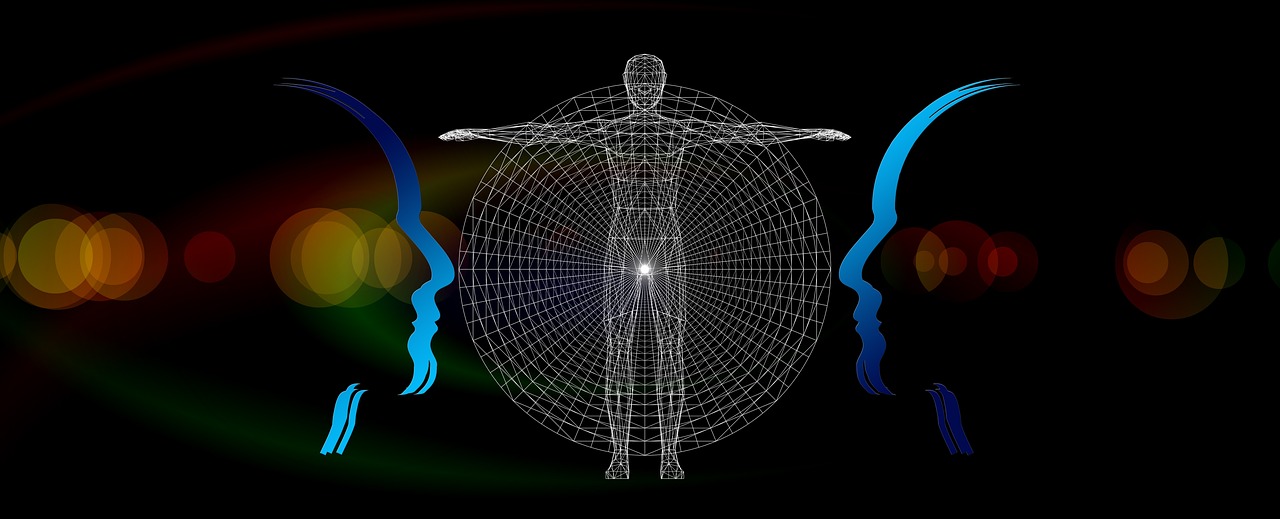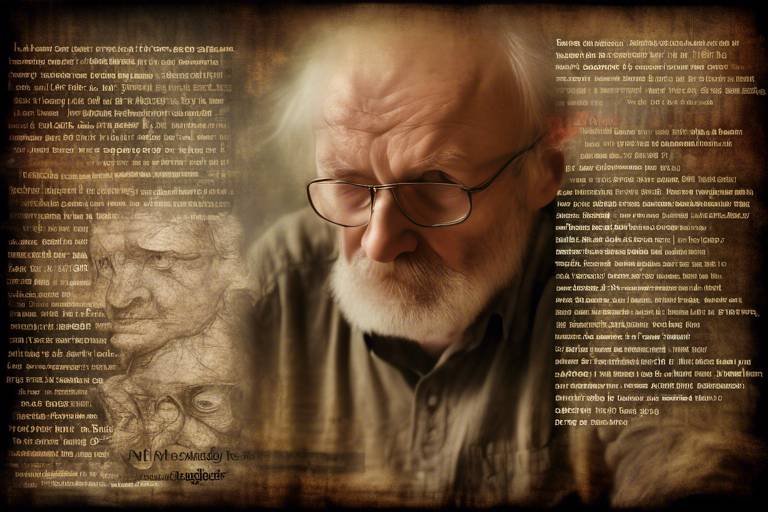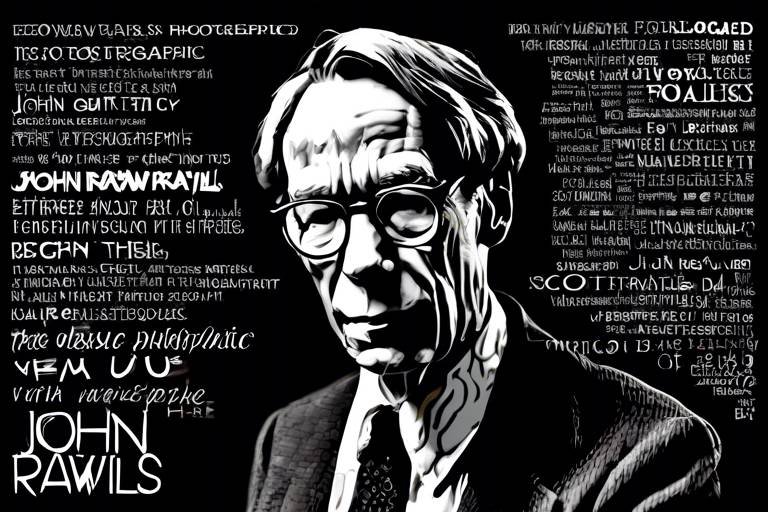What Can We Learn from Montaigne's Essays?
Michel de Montaigne, a French Renaissance philosopher, penned a collection of writings that have transcended time, offering readers a treasure trove of insights into the human experience. His essays are not just mere reflections; they are a deep dive into the complexities of life, providing us with a mirror to examine our own thoughts and behaviors. In a world that often feels chaotic and overwhelming, Montaigne’s work serves as a guiding light, urging us to pause, reflect, and engage with the world around us in a more meaningful way.
One of the most striking aspects of Montaigne's essays is their timeless relevance. Even though they were written in the late 16th century, the themes he explores—self-reflection, skepticism, and the acceptance of human fallibility—resonate profoundly with contemporary readers. Have you ever found yourself questioning your beliefs or feeling uncertain about your path in life? Montaigne invites us to embrace these moments of doubt as opportunities for growth and understanding. His work reminds us that life is not about having all the answers, but rather about asking the right questions.
Moreover, Montaigne’s essays encourage a deep sense of introspection. In a society that often prioritizes busyness and productivity, he challenges us to slow down and engage with our inner selves. This self-reflection is not a solitary endeavor; it fosters a connection with our thoughts and feelings, allowing us to navigate our experiences with greater clarity. By examining our beliefs and values, we can cultivate a more authentic existence, one that aligns with who we truly are rather than who society expects us to be.
In essence, Montaigne’s essays are a call to action for anyone seeking to understand themselves and the world better. They offer a framework for examining life’s uncertainties and embracing the complexities of our existence. So, what can we learn from Montaigne? In a nutshell, we learn that life is a continuous journey of questioning, reflecting, and growing—a journey that is uniquely our own.
- What is the main theme of Montaigne's essays? Montaigne's essays primarily focus on self-reflection, skepticism, and the acceptance of human imperfection.
- How can Montaigne's insights apply to modern life? His insights encourage individuals to engage in introspection, question societal norms, and embrace uncertainty, which are all relevant in today's fast-paced world.
- Why is self-reflection important according to Montaigne? Self-reflection allows individuals to understand their thoughts and feelings better, fostering personal growth and authenticity.
- What role does skepticism play in Montaigne's philosophy? Skepticism promotes critical thinking and encourages individuals to challenge their assumptions and explore various perspectives.

The Nature of Self-Reflection
Montaigne emphasizes the importance of self-reflection in understanding oneself. His essays encourage readers to engage in introspection, fostering personal growth and a deeper connection with their own thoughts and feelings. Imagine looking into a mirror, not just to check your appearance, but to explore the depths of your soul. This is the essence of self-reflection that Montaigne champions. By taking the time to reflect on our experiences, emotions, and motivations, we can uncover layers of our identity that often go unnoticed in the hustle and bustle of daily life.
Self-reflection is akin to peeling an onion; each layer you remove reveals something new and sometimes unexpected. Montaigne invites us to ask ourselves probing questions, such as: What do I truly value? or Why do I react this way in certain situations? These questions can be uncomfortable, but they are essential for personal development. According to Montaigne, it is through this process of questioning and introspection that we can achieve a greater understanding of our own nature and the world around us.
Moreover, Montaigne's essays suggest that self-reflection is not a one-time event but a continual practice. Just as we maintain our physical health through regular exercise, our mental and emotional well-being requires regular check-ins with ourselves. This practice can take many forms, such as journaling, meditation, or simply taking a quiet moment to contemplate our thoughts. By making self-reflection a habit, we can cultivate a more profound sense of self-awareness and emotional intelligence.
In today’s fast-paced world, where distractions are abundant, Montaigne’s call for self-reflection is more relevant than ever. The modern individual often finds themselves caught up in a whirlwind of responsibilities and social media noise, leaving little room for introspection. Yet, it is in those quiet moments of self-reflection that we can gain clarity and direction in our lives. By embracing Montaigne's teachings, we can learn to navigate the complexities of our emotions and thoughts, ultimately leading to a more fulfilling and authentic existence.
To illustrate the transformative power of self-reflection, here are some key benefits:
- Enhanced Self-Awareness: Understanding your motivations and emotions.
- Improved Decision-Making: Making choices that align with your true self.
- Greater Emotional Resilience: Learning to cope with life's challenges more effectively.
In conclusion, Montaigne's emphasis on self-reflection serves as a timeless reminder of the importance of looking inward. By engaging in this practice, we not only foster personal growth but also cultivate a deeper connection with those around us. The journey of self-discovery is ongoing, and Montaigne’s essays remain a guiding light, encouraging us to explore the intricate tapestry of our thoughts and feelings.

The Role of Skepticism
Montaigne’s skepticism invites readers to question established beliefs and norms, creating a space for critical thinking and open-mindedness. Imagine walking through a dense forest where every tree represents a belief or a societal norm; Montaigne hands you a compass, urging you to navigate through the foliage of assumptions and preconceptions. Rather than following the well-trodden paths, he encourages you to venture off the beaten track, to explore the underbrush of alternative perspectives. This journey of inquiry is not just about questioning for the sake of questioning; it’s about fostering a deeper understanding of the complexities of life.
In today’s fast-paced world, where information is abundant yet often misleading, Montaigne’s approach is more relevant than ever. He challenges us to adopt a mindset that embraces uncertainty and ambiguity. Rather than seeking absolute truths, we should be comfortable with the gray areas of knowledge. This doesn't mean we should discard all beliefs; instead, we should hold them lightly, ready to adjust our views as new information comes to light. Montaigne’s skepticism encourages a dynamic interplay between belief and doubt, creating a fertile ground for intellectual growth.
Furthermore, his essays illustrate that skepticism is not merely a tool for criticism; it’s a pathway to greater understanding. By questioning certainties, we open ourselves to a broader spectrum of ideas. This practice fosters intellectual curiosity, inviting us to engage in meaningful dialogues with others. Consider the following benefits of adopting a skeptical mindset:
- Enhanced Critical Thinking: By evaluating information and questioning its validity, we become more discerning consumers of knowledge.
- Greater Open-Mindedness: Skepticism encourages us to listen to differing viewpoints, fostering empathy and understanding.
- Increased Adaptability: Embracing uncertainty allows us to pivot and adjust our beliefs as new evidence emerges.
Ultimately, Montaigne’s essays remind us that skepticism is not about cynicism; it’s about cultivating a sense of wonder and curiosity about the world. It’s about asking the right questions and being willing to explore the answers, however complex they may be. In a society that often prioritizes certainty and dogma, Montaigne’s call for skepticism is a refreshing invitation to engage with life’s mysteries in a thoughtful and nuanced way.
One of the most profound lessons from Montaigne is the idea that uncertainty is a natural part of life. In our quest for knowledge, we often seek definitive answers, but Montaigne teaches us that accepting ambiguity can lead to resilience and adaptability. Life, much like a winding river, flows unpredictably, and by learning to navigate its twists and turns, we can find deeper fulfillment.
Montaigne suggests that doubt can be a source of strength. Rather than viewing uncertainty as a weakness, we should embrace it as an opportunity for growth. When we allow ourselves to question our beliefs, we can achieve a more nuanced understanding of the world and our place within it. This willingness to sit with doubt can lead to richer experiences and deeper connections with others.
Finally, Montaigne’s essays encourage us to question what is often taken for granted. This practice not only fosters intellectual curiosity but also cultivates a spirit of inquiry that enriches our lives. By challenging our assumptions, we can uncover hidden truths and gain insights that transform our perspectives.
Q: What is the main message of Montaigne's skepticism?
A: Montaigne’s skepticism encourages questioning established beliefs and norms, promoting critical thinking and open-mindedness.
Q: How can skepticism benefit personal growth?
A: By embracing uncertainty and questioning certainties, individuals can cultivate resilience, adaptability, and a deeper understanding of themselves and others.
Q: Is skepticism the same as cynicism?
A: No, skepticism is about seeking knowledge and understanding through inquiry, while cynicism often involves a distrust of motives and a dismissive attitude towards beliefs.

Embracing Uncertainty
Uncertainty is a concept that many of us shy away from. We crave stability, predictability, and a clear path forward. However, Montaigne teaches us that uncertainty is not just a part of life; it is a vital aspect of our human experience. Imagine walking through a foggy forest—each step is cautious, but the mystery of what lies ahead can also be exhilarating. This is how Montaigne invites us to perceive uncertainty: as an opportunity for growth rather than a source of fear.
By embracing uncertainty, we open ourselves to a world of possibilities. It allows us to break free from the constraints of rigid thinking and invites us to explore new ideas, experiences, and perspectives. Think about it: when was the last time you stepped outside your comfort zone? Maybe it was trying a new dish or starting a new hobby. Each time you embrace the unknown, you expand your horizons and learn something new about yourself.
Montaigne’s essays encourage us to cultivate resilience in the face of ambiguity. This means accepting that we won’t always have answers or control over every situation. In fact, he suggests that learning to live with uncertainty can lead to greater adaptability. Just as a tree bends with the wind, we too can learn to sway with life’s unpredictable nature.
Moreover, embracing uncertainty fosters a sense of curiosity. When we accept that we don’t have all the answers, we become more open to asking questions and seeking knowledge. This can be particularly liberating in our personal and professional lives. Consider the following benefits of embracing uncertainty:
- Enhanced Creativity: Uncertainty can spark creativity, pushing us to think outside the box.
- Greater Empathy: Understanding that others also face uncertainty can deepen our connections and compassion.
- Improved Decision-Making: When we accept that we can't predict outcomes, we can make more informed choices based on available information.
In conclusion, Montaigne’s insights on uncertainty remind us that it is a natural part of life. By embracing it, we can enhance our resilience, creativity, and understanding of the world around us. So, the next time you find yourself facing the unknown, remember Montaigne’s wisdom: uncertainty is not to be feared, but rather, it is a canvas on which we can paint our experiences and growth.
Q1: How can I start embracing uncertainty in my life?
A1: Begin by stepping out of your comfort zone. Try new activities, meet new people, and challenge your existing beliefs. Each small step can help you become more comfortable with the unknown.
Q2: What if I feel overwhelmed by uncertainty?
A2: It’s normal to feel overwhelmed. Practice mindfulness and focus on the present moment. Journaling your thoughts can also help you process your feelings about uncertainty.
Q3: Can embracing uncertainty lead to personal growth?
A3: Absolutely! Embracing uncertainty can enhance your adaptability, creativity, and problem-solving skills, all of which contribute to personal growth.

Finding Comfort in Doubt
In a world that often demands certainty and clear-cut answers, may seem counterintuitive. However, Michel de Montaigne challenges us to embrace doubt as a vital part of our existence. Rather than viewing uncertainty as a weakness, Montaigne encourages us to see it as a catalyst for growth. When we accept that we do not have all the answers, we open ourselves up to new possibilities and deeper understanding.
Think about it: how often do we cling to our beliefs, convinced that we are right? This rigid mindset can limit our potential and stifle our personal development. Montaigne suggests that by allowing ourselves to question our convictions, we can cultivate a more nuanced perspective on life. Embracing doubt allows us to explore the complexities of our thoughts and feelings, leading to a richer understanding of ourselves and the world around us.
Moreover, doubt can spark curiosity. It encourages us to ask questions and seek knowledge, rather than merely accepting things at face value. When we acknowledge our uncertainties, we embark on a journey of exploration. This process can be likened to wandering through a dense forest; the path may not always be clear, but each twist and turn reveals new wonders and insights. By welcoming doubt, we transform our journey into an adventure, filled with opportunities for learning and growth.
Additionally, Montaigne's perspective on doubt promotes a sense of humility. Recognizing that we do not possess all the answers allows us to connect with others on a deeper level. It encourages empathy and understanding, as we realize that everyone grapples with their own uncertainties. This shared experience can foster stronger relationships and a more compassionate society.
In conclusion, finding comfort in doubt is not an easy task, but it is a rewarding one. Montaigne's insights remind us that uncertainty is not something to fear, but rather a natural part of the human experience. By embracing our doubts, we can cultivate resilience, foster intellectual curiosity, and build deeper connections with ourselves and others. So, the next time you find yourself questioning your beliefs or feeling uncertain, remember Montaigne's wisdom: there is strength in doubt.
- Why is doubt considered a strength? Doubt encourages exploration and critical thinking, allowing for personal growth and a deeper understanding of oneself.
- How can I learn to embrace doubt? Start by questioning your assumptions and being open to new ideas. Reflect on your experiences and recognize that uncertainty is a natural part of life.
- What are the benefits of accepting uncertainty? Accepting uncertainty can lead to increased resilience, adaptability, and stronger relationships with others.

Questioning Certainties
When we dive into the depths of Montaigne's essays, one of the most striking lessons we encounter is the encouragement to question certainties. In a world where we often cling to beliefs and ideas as if they were absolute truths, Montaigne nudges us to take a step back and scrutinize what we accept as given. Think about it: how many of our beliefs are truly ours, and how many have we inherited from societal norms, family traditions, or even popular culture? This practice of questioning isn’t just an intellectual exercise; it's a vital skill for personal growth and understanding.
Montaigne suggests that by challenging our certainties, we open ourselves up to a broader spectrum of knowledge and experience. It's like peeling an onion—each layer we remove reveals something new and often unexpected. In doing so, we become more aware of our biases and the limitations of our perspectives. This process can be uncomfortable, but it is essential for fostering intellectual curiosity and a willingness to explore the complexities of life.
Moreover, questioning certainties can lead to a richer, more nuanced understanding of the world around us. For instance, consider how many times we’ve held onto a belief only to find that new information or experiences have changed our viewpoint. Montaigne’s essays serve as a reminder that flexibility in thought is crucial. By embracing a mindset that is open to change, we not only enhance our personal growth but also enrich our interactions with others. We become more empathetic and understanding, recognizing that everyone’s journey is colored by different experiences and perspectives.
So, how do we cultivate this habit of questioning? Here are a few strategies inspired by Montaigne's reflections:
- Engage in Dialogue: Having open discussions with others can expose you to new ideas and challenge your own beliefs.
- Read Widely: Explore literature and philosophies that differ from your own. This can provide fresh insights and provoke thought.
- Reflect Regularly: Take time to ponder your beliefs and the reasons behind them. Journaling can be a powerful tool for this.
In essence, Montaigne invites us to embrace a life of inquiry. By questioning our certainties, we not only become better thinkers but also more compassionate individuals. In a world that often feels polarized and divided, this practice can bridge gaps and foster understanding. So, the next time you find yourself holding onto a belief too tightly, remember Montaigne’s wisdom: it’s okay to doubt and to seek out the many shades of truth that exist in our complex world.
- What is the main theme of Montaigne's essays? Montaigne's essays primarily focus on self-reflection, skepticism, and the exploration of human nature.
- How can questioning certainties benefit personal growth? By questioning certainties, individuals can develop critical thinking skills, enhance their understanding of diverse perspectives, and foster personal resilience.
- What methods can I use to question my own beliefs? Engaging in dialogue, reading diverse materials, and reflecting through journaling are effective methods to challenge your beliefs.

Personal Experience as a Teacher
Michel de Montaigne, in his profound essays, presents a compelling argument that personal experience is the ultimate teacher. He invites us to reflect on our individual journeys, emphasizing that the lessons we learn from our own lives are invaluable. Think about it: when you face challenges or triumphs, it's those moments that shape your understanding of the world around you. Montaigne's perspective is akin to the idea that life is a classroom, where each experience is a lesson waiting to be learned.
In his essays, Montaigne illustrates that knowledge isn't just something we acquire from books or lectures; rather, it's deeply embedded in our experiences. He argues that the richness of life comes from our personal encounters, and these encounters often teach us more than any formal education ever could. For example, consider the way we learn to navigate relationships. The intricacies of human interaction can't be fully understood through theory alone; they require real-life practice and reflection.
Moreover, Montaigne encourages us to embrace our unique stories. Each of us has a narrative filled with joys, sorrows, failures, and successes. These narratives are not just personal; they resonate with universal themes that connect us all. By sharing our experiences, we can foster a deeper understanding of humanity. Montaigne's essays serve as a reminder that every story holds a lesson, and by listening to others, we enrich our own understanding of life.
To illustrate this point, let's look at a simple table that summarizes how personal experiences can shape our understanding:
| Experience Type | Lesson Learned |
|---|---|
| Failure | Resilience and growth often come from setbacks. |
| Success | Confidence can be built through achievements. |
| Relationships | Understanding empathy and communication is key. |
| Travel | Exposure to different cultures broadens perspectives. |
In essence, Montaigne's belief in the power of personal experience encourages us to view our lives as a continuous learning process. We should not shy away from our past experiences, but rather embrace them as teachers. Each moment, whether positive or negative, contributes to our growth and understanding. So, the next time you encounter a challenge or a joy, take a moment to reflect on what it teaches you. After all, as Montaigne suggests, the journey of self-discovery is one of the most profound adventures we can undertake.
- What is the main idea of Montaigne's essays?
Montaigne's essays explore various aspects of human nature, emphasizing the importance of self-reflection, personal experience, and skepticism in understanding life. - How can personal experiences influence our growth?
Personal experiences provide unique lessons that shape our perspectives, enhance our resilience, and foster empathy towards others. - Why is skepticism important according to Montaigne?
Skepticism encourages questioning established beliefs, promoting critical thinking and open-mindedness, which are essential for personal and intellectual growth.

Human Fallibility
Michel de Montaigne was a master at exploring the intricacies of human nature, and one of his most profound insights is the concept of . He reminds us that imperfection is not just a flaw; it's an integral part of being human. In a world that often pressures us to strive for perfection, Montaigne encourages us to embrace our flaws and recognize that they make us who we are. This acceptance can lead to a more compassionate view of ourselves and others, fostering a sense of community and understanding.
Think about it: when we acknowledge our imperfections, we open the door to growth and learning. Montaigne’s essays serve as a gentle nudge, urging us to reflect on our mistakes and the lessons they impart. Instead of viewing failure as a dead end, he suggests we see it as a stepping stone on our journey. Each misstep is an opportunity to learn something new, to refine our understanding, and to develop resilience.
Montaigne’s perspective on human fallibility also highlights the importance of empathy. When we accept our own shortcomings, we become more understanding of others' struggles. This shared experience of being imperfect allows us to connect on a deeper level. For instance, when we see a friend falter, instead of judging them harshly, we can recall our own moments of weakness. This understanding fosters a sense of community and encourages a culture where people feel safe to express their vulnerabilities.
Moreover, Montaigne’s insights can be applied to various aspects of life, from personal relationships to professional environments. In the workplace, acknowledging that everyone makes mistakes can lead to a culture of collaboration rather than competition. Teams that embrace fallibility are more likely to innovate and take risks, as they understand that failure is part of the process. This mindset not only enhances productivity but also creates a more supportive atmosphere where creativity can flourish.
In essence, Montaigne’s exploration of human fallibility invites us to celebrate our imperfections. By doing so, we can cultivate a more compassionate society that values growth over perfection. It's a powerful reminder that our flaws do not define us; instead, they enrich our human experience and highlight the beauty of our shared journey.
- Why is it important to accept human fallibility?
Accepting human fallibility allows for personal growth and fosters empathy towards oneself and others, creating a more understanding society. - How can embracing imperfections lead to better relationships?
When we acknowledge our own flaws, we become more compassionate and understanding towards others, enhancing our connections and fostering deeper relationships. - What role does failure play in personal development?
Failure is a crucial part of personal development as it provides valuable lessons and opportunities for growth, helping us build resilience.

Learning from Mistakes
This article explores the timeless insights of Michel de Montaigne's essays, highlighting their relevance in contemporary life, philosophy, and personal growth.
Montaigne emphasizes the importance of self-reflection in understanding oneself. His essays encourage readers to engage in introspection, fostering personal growth and a deeper connection with their own thoughts and feelings.
Montaigne’s skepticism invites readers to question established beliefs and norms. His approach promotes critical thinking and open-mindedness, encouraging individuals to explore different perspectives and challenge their assumptions.
Montaigne teaches that uncertainty is a natural part of life. By accepting ambiguity, individuals can cultivate resilience and adaptability, leading to a more fulfilling existence.
Montaigne suggests that doubt can be a source of strength. Embracing doubt allows for a more nuanced understanding of the world and oneself.
Montaigne’s essays encourage questioning what is often taken for granted. This practice fosters intellectual curiosity and a willingness to explore the complexities of life.
Montaigne believes that personal experience is a vital source of knowledge. His essays highlight the significance of lived experiences in shaping one’s understanding of life and human nature.
Montaigne acknowledges human imperfection, urging readers to embrace their flaws. This acceptance fosters compassion towards oneself and others, promoting a more understanding and empathetic society.
One of the most profound lessons we can glean from Montaigne's essays is the importance of . In a world that often glorifies success, Montaigne reminds us that failure is not just a possibility; it’s an integral part of the human experience. He encourages us to view our missteps not as dead ends but as stepping stones toward greater wisdom.
When we stumble, it's easy to feel defeated. However, Montaigne's reflections suggest that these moments of failure can be transformed into opportunities for growth. By analyzing our mistakes, we gain insights that can guide our future decisions. For instance, consider the following:
- Self-Analysis: Reflecting on what went wrong helps us understand our choices and behaviors.
- Adaptation: Learning from our errors enables us to adapt our strategies moving forward.
- Resilience: Each mistake builds our resilience, teaching us how to bounce back stronger.
This perspective on failure is not just about personal growth; it also fosters a culture of acceptance and understanding within our communities. When we share our failures openly, we create a safe space for others to do the same. This collective honesty can lead to deeper connections and a more empathetic society. Montaigne's belief in the value of personal experience extends to our failures, suggesting that they can be our greatest teachers.
In a way, learning from mistakes is akin to navigating through a dense fog. Initially, it may seem daunting, but with each step taken, we begin to see the path more clearly. Montaigne's essays encourage us to embrace this journey through uncertainty, reminding us that the lessons learned from our failures are just as valuable, if not more so, than our successes.
Q: How can I apply Montaigne's philosophy of learning from mistakes in my daily life?
A: Start by reflecting on your recent failures. Consider what went wrong, what you can learn from the experience, and how you can apply those lessons moving forward.
Q: Why is it important to embrace our flaws according to Montaigne?
A: Embracing our flaws allows us to cultivate compassion for ourselves and others, fostering a more understanding and empathetic society.
Q: Can sharing my mistakes help others?
A: Absolutely! Sharing your experiences can create a supportive environment where others feel safe to share their own challenges, leading to collective growth.

Celebrating Diversity of Thought
One of the most profound lessons we can extract from Montaigne's essays is the celebration of diversity of thought. In a world that often feels polarized, Montaigne reminds us that embracing different perspectives is not just beneficial; it is essential for our growth and understanding. Imagine standing in a room filled with mirrors, each reflecting a different version of yourself. That’s what engaging with diverse viewpoints can feel like—it broadens your understanding and enriches your life experience. Montaigne’s essays encourage us to step beyond our echo chambers and engage with ideas that challenge our own.
Through his writings, Montaigne illustrates that the richness of human experience lies in our differences. He argues that when we open ourselves to various perspectives, we not only learn more about the world but also about ourselves. For instance, consider how a discussion among friends can transform when each person brings their unique background and beliefs to the table. This dialogue can lead to unexpected insights and a deeper appreciation of one another's experiences. Montaigne's approach advocates for cultivating an environment where such exchanges are welcomed and valued.
Moreover, Montaigne's idea of celebrating diversity of thought is not merely about tolerance; it's about active engagement. He encourages us to question our assumptions and to seek out voices that differ from our own. This practice can be likened to seasoning a dish; just as a variety of spices can elevate a meal, a variety of thoughts can elevate our understanding. When we allow ourselves to be influenced by others, we create a tapestry of ideas that is richer and more nuanced than any single perspective could offer.
In today's society, where the rapid spread of information can lead to echo chambers, Montaigne’s insights are more relevant than ever. He challenges us to engage in meaningful conversations that transcend superficial disagreements. By doing so, we not only foster our own intellectual growth but also contribute to a more compassionate and understanding society. This is especially crucial in a time when divisive rhetoric can overshadow constructive dialogue.
To truly celebrate diversity of thought, we must practice active listening and empathy. This means not just hearing what others say, but genuinely trying to understand their perspectives. It’s about being curious rather than defensive. When we approach conversations with an open mind, we invite a wealth of knowledge and experience that can reshape our own views. In essence, Montaigne's essays serve as a call to action, urging us to embrace the complexity of human thought and to recognize the value that differing opinions can bring into our lives.
In conclusion, Montaigne teaches us that diversity of thought is not just a concept to be acknowledged; it is a vital component of a rich and fulfilling life. By engaging with a spectrum of ideas, we cultivate not only our own minds but also contribute to a more harmonious society. So, let’s take Montaigne’s wisdom to heart and celebrate the beautiful mosaic of human thought that surrounds us.
- What is the main idea behind Montaigne's essays?
Montaigne's essays focus on self-reflection, skepticism, and the importance of personal experience, encouraging readers to explore their own thoughts and beliefs. - How can embracing diverse thoughts benefit me?
Engaging with diverse perspectives can lead to greater understanding, empathy, and personal growth, enriching your life experiences. - Why is skepticism important in Montaigne's philosophy?
Skepticism encourages questioning established norms and beliefs, fostering critical thinking and open-mindedness. - How can I practice self-reflection in my daily life?
Set aside time for journaling, meditation, or simply contemplating your thoughts and feelings to enhance your self-awareness.
Frequently Asked Questions
- What is the main theme of Montaigne's essays?
Montaigne's essays primarily explore the nature of self-reflection and personal experience. He delves into how understanding oneself through introspection can lead to personal growth and a deeper connection with our thoughts and feelings.
- How does Montaigne view skepticism?
Montaigne embraces skepticism as a crucial tool for questioning established beliefs and norms. By promoting critical thinking and open-mindedness, he encourages readers to explore different perspectives and challenge their assumptions.
- What can we learn from embracing uncertainty?
According to Montaigne, embracing uncertainty is vital for resilience and adaptability. By accepting that ambiguity is a part of life, individuals can cultivate a more fulfilling existence and navigate challenges with greater ease.
- Why is personal experience important in Montaigne's philosophy?
Montaigne believes that personal experience is a fundamental source of knowledge. His essays emphasize how our lived experiences shape our understanding of life and human nature, making them invaluable teachers.
- How does Montaigne address human fallibility?
Montaigne acknowledges that human imperfection is a given. He urges readers to embrace their flaws, which fosters compassion towards oneself and others, ultimately promoting a more understanding and empathetic society.
- What role do mistakes play in personal growth?
Montaigne reflects on the importance of learning from mistakes, viewing failures as opportunities for growth. This perspective encourages resilience, transforming setbacks into valuable lessons for future endeavors.
- Why is diversity of thought significant in Montaigne's essays?
Montaigne advocates for appreciating diverse viewpoints, highlighting the richness that different perspectives bring to discussions. This celebration of diversity enhances understanding and collaboration among individuals.



















